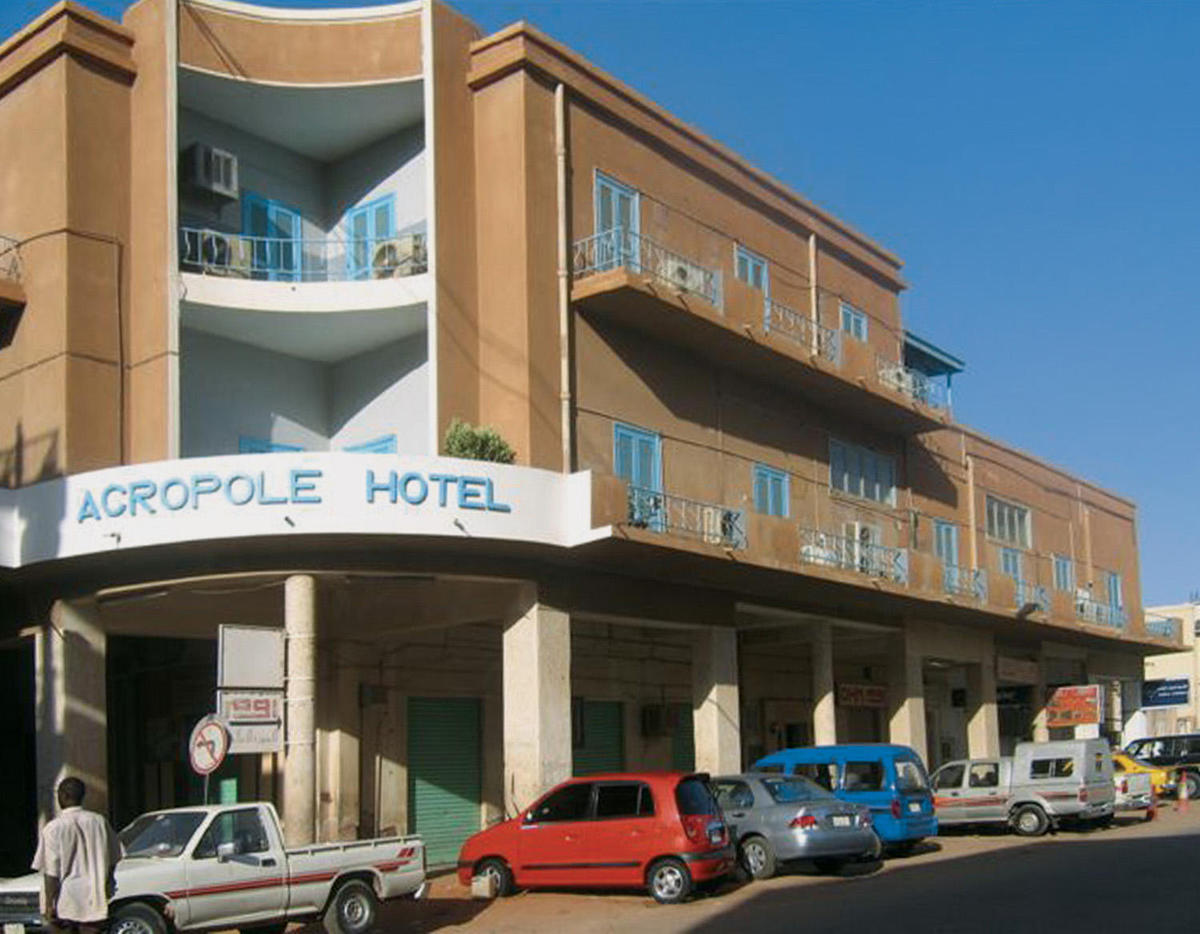
If you really want to go to Sudan as a tourist be forewarned — not about the violence consuming Darfur, not about the repressive policies of the government. Rather, prepare for death by a thousand paper cuts. Bureaucracy you thought had died with the Soviet empire flourishes in the deserts of Sudan with a smile and tea. But there is hope if you’re really determined to go, care of the Hotel Acropole and the Pagoulatos family. Born and bred in Sudan during the British occupation, these three zen-like Greek brothers and their Greek wives can solve all your problems with the government — whether it’s a simple matter like registration with the police, or sorting out travel permits you have gotten from one ministry that are rejected by a checkpoint soldier from another ministry, or even getting you out of prison for photographing a man playing cards.
The Acropole is the oldest hotel in Khartoum, founded by their father in 1955. It’s a simple, inexpensive two-story affair, with Mediterranean style blue-painted shutters and tiled balconies, free wireless access in all the rooms, a friendly staff of Sudanese and Filipinos, and three buffet meals a day included and served in a communal dining room where you will meet archaeologists, missionaries, aid workers, journalists, tourists, and an assortment of businessmen selling security, oil technology, cars, brand names and tours. The Acropole is right in the middle of town, near markets, fish restaurants, businesses. An added attraction is the OHM electronics shop next door, which is owned by the brother of Sheikh Musa Hilal, the tribal leader of Darfur’s notorious Janjaweed. Several journalists and members of human rights organizations have managed to interview Hilal in that shop. The key to the calm of Thanasis, George, and Mike Pagoulatos lies in their history with Sudan. Having survived coups, revolutions and bombs, they’ve always found friends in each successive regime to smooth things along. They’ve watched their Greek community dwindle from 12,000 at the turn of the last century to less than 100 now. Their original hotel across the street was blown up by Hamas, along with the Sudan Club in 1988, and with it went the roof garden where they once showed Friday night movies. When Numeri imposed Sharia law in 1983, their bars and wine shops were shut down. And under Bashir, the son of the Sudanese owner of the Acropole was hung by the new president for carrying foreign currency. And though Thanasis still has trouble hearing from a Hamas bomb, you will never see him without a smile or hear him complain.
The brothers love the Sudanese people, consider the country their home, and will do their best to make you feel the same, taking responsibility for you from the moment you make a reservation until you are safely on the plane home. When notorious filmmaker Leni Riefenstahl’s helicopter crashed in the Nuba mountains, the Pagoulatos brothers found her a Sudan Airways captain and plane to rescue her and the crew, and had an ambulance waiting at the airport. During the famine, when provisions were as scarce as rain, the Pagoulatos family and their Sudanese network scrounged up goods for Oxfam and Save the Children to get to the camps. As long as your whims are within the law, they’ll satisfy them — even the dodgy, nearly impossible camel desert expeditions their British clients favor.
Zubeir Pascha Str.
Khartoum, Sudan, 11111
www.acropolekhartoum.com